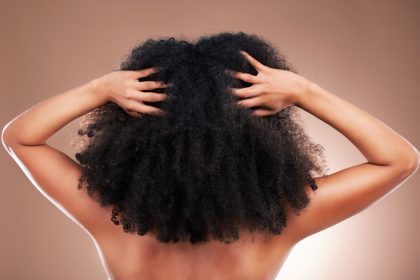How this powerful vitamin revolutionizes scalp and strand wellness

How this powerful vitamin revolutionizes scalp and strand wellness
The relationship between vitamin A and hair health represents a fascinating intersection of nutrition and beauty. While widely recognized for its skincare benefits, this essential nutrient plays an equally crucial role in maintaining healthy, vibrant hair. From promoting follicle development to supporting scalp wellness, this vitamin has a significant impact on hair growth and strength.
Understanding vitamin A’s role
Vitamin A is a vital nutrient that supports overall health, particularly through its role in cell growth and regeneration. This fat-soluble vitamin is found in different forms, each playing a distinct role in hair health.
Retinoids
Retinoids, derived from preformed vitamin A, contribute to hair health by promoting cell turnover and enhancing the overall health of hair follicles. They help regulate sebum production, which keeps the scalp nourished and prevents issues like dryness and excessive oiliness. The balanced sebum production supported by retinoids can help create an optimal environment for hair growth, while also aiding in the prevention of scalp conditions such as dandruff.
Carotenoids
Carotenoids, the plant-based precursors to vitamin A, act as potent antioxidants that help protect hair cells from damage caused by environmental stressors. The body converts carotenoids into active vitamin A, which supports cellular health and the maintenance of the hair growth cycle. These compounds not only protect hair from oxidative stress but also assist in maintaining the scalp’s moisture balance.
Hair health benefits
Vitamin A’s positive impact on hair extends beyond just growth; it supports comprehensive scalp and hair health in a variety of ways.
Growth promotion
This vitamin plays a crucial role in supporting hair follicle development and cellular regeneration, which are essential for a robust growth cycle. It can help maintain hair growth and prevent premature shedding by encouraging the natural life cycle of hair follicles. When vitamin A levels are balanced, the result is stronger and healthier hair.
Scalp health
A well-balanced scalp environment is fundamental for hair growth, and vitamin A contributes significantly to maintaining it. By regulating sebum production, vitamin A prevents excessive oil buildup, which can lead to scalp conditions such as greasy hair and dandruff. It also helps maintain moisture balance, preventing dryness and irritation while supporting healthy circulation. Proper circulation ensures that hair follicles receive the nutrients they need for growth.
Optimal usage guidelines
Incorporating vitamin A into your hair care routine requires thoughtful consideration to maximize benefits and minimize risks.
Dietary sources
The most effective way to boost this vitamin intake is through a nutrient-rich diet. Foods such as sweet potatoes, carrots, and other orange vegetables are rich in beta-carotene, which the body converts into active vitamin A. Leafy greens like spinach and kale, along with eggs and dairy products, also provide essential forms of this vitamin. Fish and liver are additional excellent sources, offering vitamin A in a more readily absorbed form.
Topical applications
Vitamin A can be applied directly to the scalp and hair through hair oils, scalp treatments, leave-in products, and treatment masks. Formulations containing retinoids or plant-based sources can nourish and stimulate hair follicles, improve the texture of the scalp, and enhance overall hair health. However, it is essential to use these products as directed to avoid excessive buildup or irritation.
Professional insights
Understanding expert perspectives on the use of the vitamin can help guide effective and safe practices for enhancing hair health.
Dermatological guidance
Dermatologists often recommend this vitamin as part of a balanced regimen. It’s crucial to follow proper dosages and frequency of use to avoid potential side effects such as dryness or irritation. Combining vitamin A with other hair-healthy nutrients can boost its effectiveness and create a comprehensive approach to hair wellness.
Clinical applications
Medical professionals may incorporate this vitamin into treatment protocols for certain scalp and hair conditions. Regular monitoring helps ensure safety and effectiveness, with adjustments made based on individual needs. When used appropriately, this vitamin can support hair health without causing adverse reactions.
Safety considerations
While vitamin A is essential for hair health, it’s important to approach its use with caution.
Precautions
Pregnant individuals should be particularly cautious with vitamin A intake, as excessive amounts can be harmful to the developing fetus. It is also important to be aware of interactions between vitamin A and other medications or supplements. Monitoring dosage limits is essential, as high levels can lead to toxicity, causing side effects such as dizziness and nausea.
Risk management
Regular assessment and consultation with healthcare professionals can help maintain safe usage. Maintaining a balanced approach by not exceeding recommended dosages ensures optimal results without adverse effects. If symptoms of excessive vitamin intake, like hair loss or scalp irritation, occur, seek professional guidance.
Implementation strategies
Integrating this vitamin into your routine effectively requires careful planning and product selection.
Dietary integration
Meal planning that includes vitamin A-rich foods can help support hair health from the inside out. Pairing these foods with healthy fats can enhance nutrient absorption. A balanced diet with nutrient timing—consuming vitamin A with meals that contain fats—can further increase its effectiveness.
Product selection
Choose quality hair care products that list this vitamin or its derivatives as active ingredients. Verify product ingredient lists and application instructions to ensure you’re using products correctly. Creating a hair care routine that includes vitamin A-based treatments, such as weekly masks or serums, can help maintain scalp health and hair strength over time.
In summary, vitamin A’s influence on hair health is extensive, promoting growth, enhancing scalp health, and protecting against damage. When used properly through diet and topical products, it can transform hair wellness and contribute to longer, stronger, and more vibrant hair.














